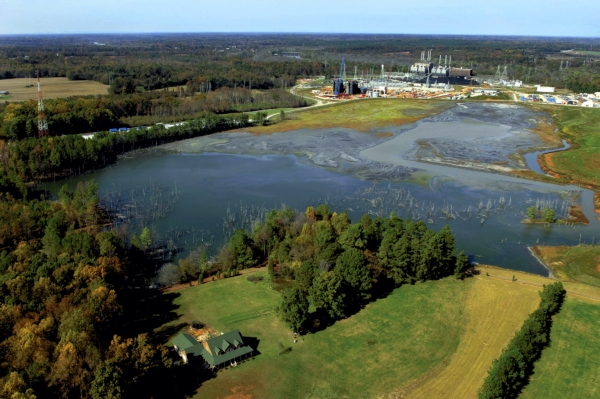Other voices: Duke rate hike doesn’t compute
Published 4:12 pm Sunday, February 4, 2018

- A November 2010 aerial photograph of the first holding basin that was being used to hold the coal ash from the coal-fired Buck Steam plant seen in the background. JON C. LAKEY / SALISBURY POST
The Charlotte Observer
Should you pay close to $120 per year to clean up Duke Energy’s coal ash mess?
Duke wants to start charging customers in this part of the Carolinas $647 million more per year on their electric bills. That would be nearly a 17 percent increase on the typical residential bill.
Duke says it needs more than half the additional money to clean up its coal ash ponds. It needs the rest to cover costs connected with its decision not to build a nuclear plant in South Carolina, continue its move to cleaner sources of energy and to make improvements to the power grid.
The seven-member N.C. Utilities Commission will decide whether and how much Duke can raise its rates. Regulators were in Charlotte Tuesday night to hear the public’s feedback on the idea — and they got an earful from an angry crowd.
A utility, like any business, may indeed need to raise its prices from time to time. But Duke is regulated by the state because it has a near-monopoly in its market. Utilities commissioners need to ensure that a rate hike on the region’s 2 million-plus customers, if any, is as small as it can be while allowing Duke to make a reasonable profit.
Here’s the math we’d use if we were utilities commissioners:
Duke wants to raise bills by $647 million per year. About $336 million of that is to clean up decades of coal ash storage that culminated in one of the nation’s worst spills, into the Dan River four years ago Friday. The company knew its ash was a potential hazard for years. Shareholders, not customers, should pay for Duke’s decision to deal with its waste in the cheapest, not most responsible, way possible all this time.
Subtract the $336 million and Duke’s remaining request is at $311 million.
Much of that money can come from the tax cut the company is about to enjoy courtesy of Congress and President Trump. The Utilities Commission’s Public Staff estimates that Duke will save about $210 million per year on its federal tax bill going forward. Duke made its request months before the tax bill passed and that money should go straight to the company’s needed $647 million.
Put the $210 million toward Duke’s after-coal-ash total of $311 million and Duke’s request stands at $101 million.
Utilities commissioners should dissect Duke’s request and, if found to be warranted, grant that $101 million hike. That would result in an increase on the typical residential bill of about 2.6 percent or about $35 per year. That’s an amount that both Duke and the average customer could live with.
One other needed change: As part of its request, Duke wants to raise the fixed charge on bills from $11.80 per month to $17.79 per month, a jump of more than 50 percent. The economics don’t justify that, and it would be an especially large burden on the low-income customers who, incidentally, typically use less electricity.
Duke has provided reliable electricity at relatively low cost for years. It has made a lot of money, too. The Utilities Commission should maintain that balance.


